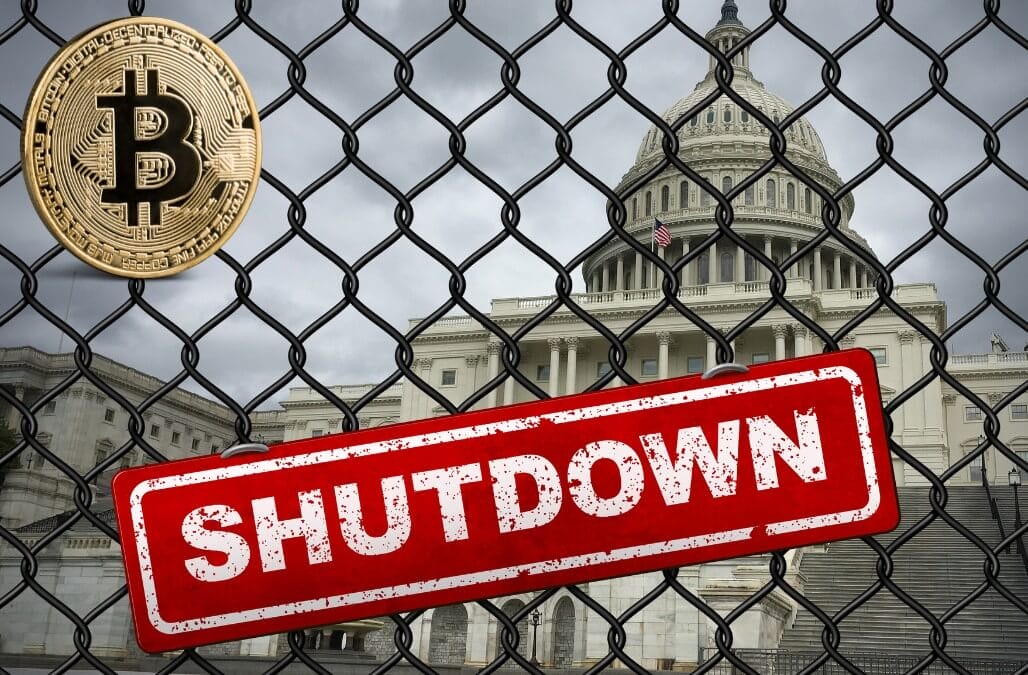
As the U.S. government shutdown looms, some market participants are viewing it as a positive factor for cryptocurrencies. Experts suggest that Bitcoin’s performance may outpace gold as the U.S. government approaches a shutdown due to reaching the debt limit. The impact of a potential shutdown on the crypto market will depend on various factors, including the duration and economic consequences of the shutdown, as well as the broader market conditions.
One reason why some see the potential government shutdown as bullish for cryptocurrencies is the belief that government procedures do not directly impact non-sovereign currencies like Bitcoin. This perspective suggests that cryptocurrencies could serve as a haven during events such as government shutdowns.
However, it’s important to note that the Bitcoin market is not completely isolated from the broader financial landscape, and events like government shutdowns can have an impact. During government shutdowns, increased market uncertainty is observed, as the duration and potential economic consequences of the shutdown remain uncertain. This uncertainty can lead to a more risk-averse approach from investors and traders, potentially resulting in higher price volatility for cryptocurrencies.
The historical behavior of Bitcoin during government shutdowns has shown fluctuations in both upward and downward directions. Various factors, including global economic conditions, investor sentiment, and the stability of financial markets, influence the extent and direction of these price swings.
Some experts suggest that Bitcoin’s performance may outpace gold during a government shutdown, as investors may turn to alternative scarce assets. Bitcoin’s substantial market capitalization and its position as a strong contender for investors seeking alternative stores of value contribute to this viewpoint. Additionally, central banks selling their gold reserves to cover expenses could further enhance Bitcoin’s attractiveness.
While gold remains a steadfast choice among safe-haven assets, ongoing economic uncertainty and the Federal Reserve’s monetary policies will continue to impact both assets.
Furthermore, the potential government shutdown could complicate efforts to establish specific regulatory frameworks for the cryptocurrency sector in the U.S. If Congress faces a disruption, progress towards legislation tailored for cryptocurrencies could be impeded, delaying important regulatory developments for the industry. Approvals for new exchange-traded funds (ETFs), including BTC spot ETFs, could also face significant delays if Congress fails to provide funding for the fiscal year, affecting the operation of agencies like the Securities and Exchange Commission (SEC).
In terms of Bitcoin’s price outlook, previous government shutdowns have resulted in notable price fluctuations. In 2013, a shutdown led to significant volatility, while the longest shutdown in U.S. history from late 2018 to early 2019 saw fluctuation but no continuous trend for Bitcoin. Amid the current government shutdown threat, cryptocurrency markets have remained relatively resilient compared to stock sell-offs.
Experts hold a constructive outlook for risk assets in the fourth quarter, anticipating a short-term move for Bitcoin between $28,500 and a possible peak at $30,000, as long as the price doesn’t dip below $26,000. Factors such as interest rates and Bitcoin miners’ operational efficiency will also play a role in Bitcoin’s price trajectory.
In conclusion, the potential government shutdown could have implications for the cryptocurrency market, including impacting Bitcoin’s price volatility. While some view the shutdown as a positive factor for cryptocurrencies, the broader market conditions, duration of the shutdown, and economic consequences will ultimately determine the impact. Investors and traders should closely monitor the situation and consider the various factors at play when making decisions regarding cryptocurrencies.






